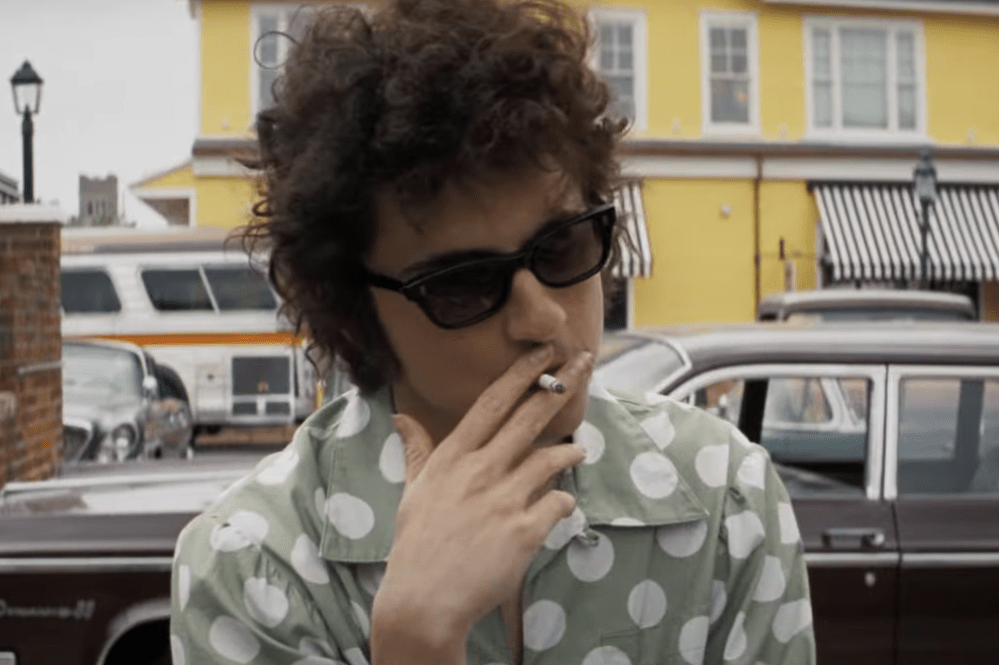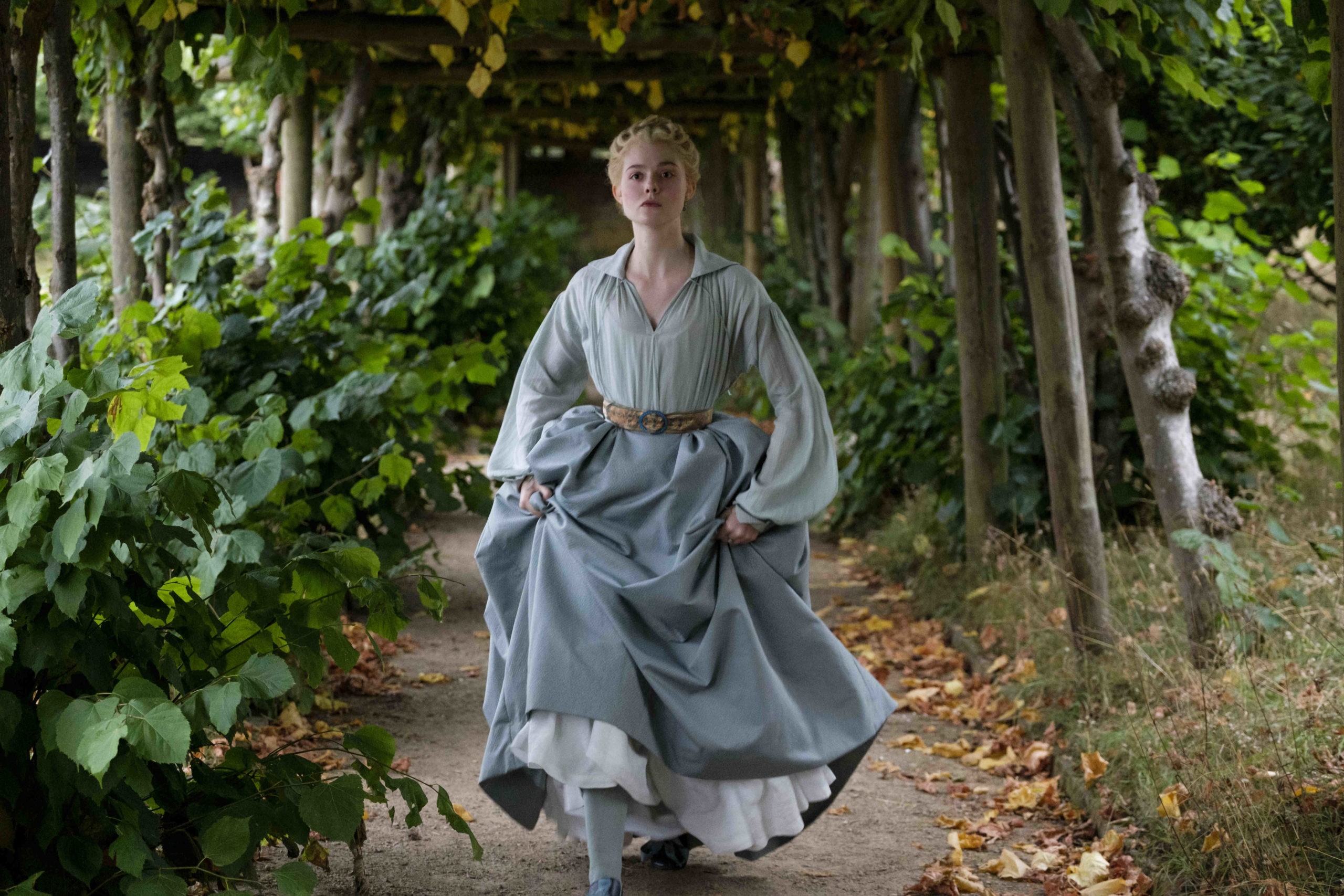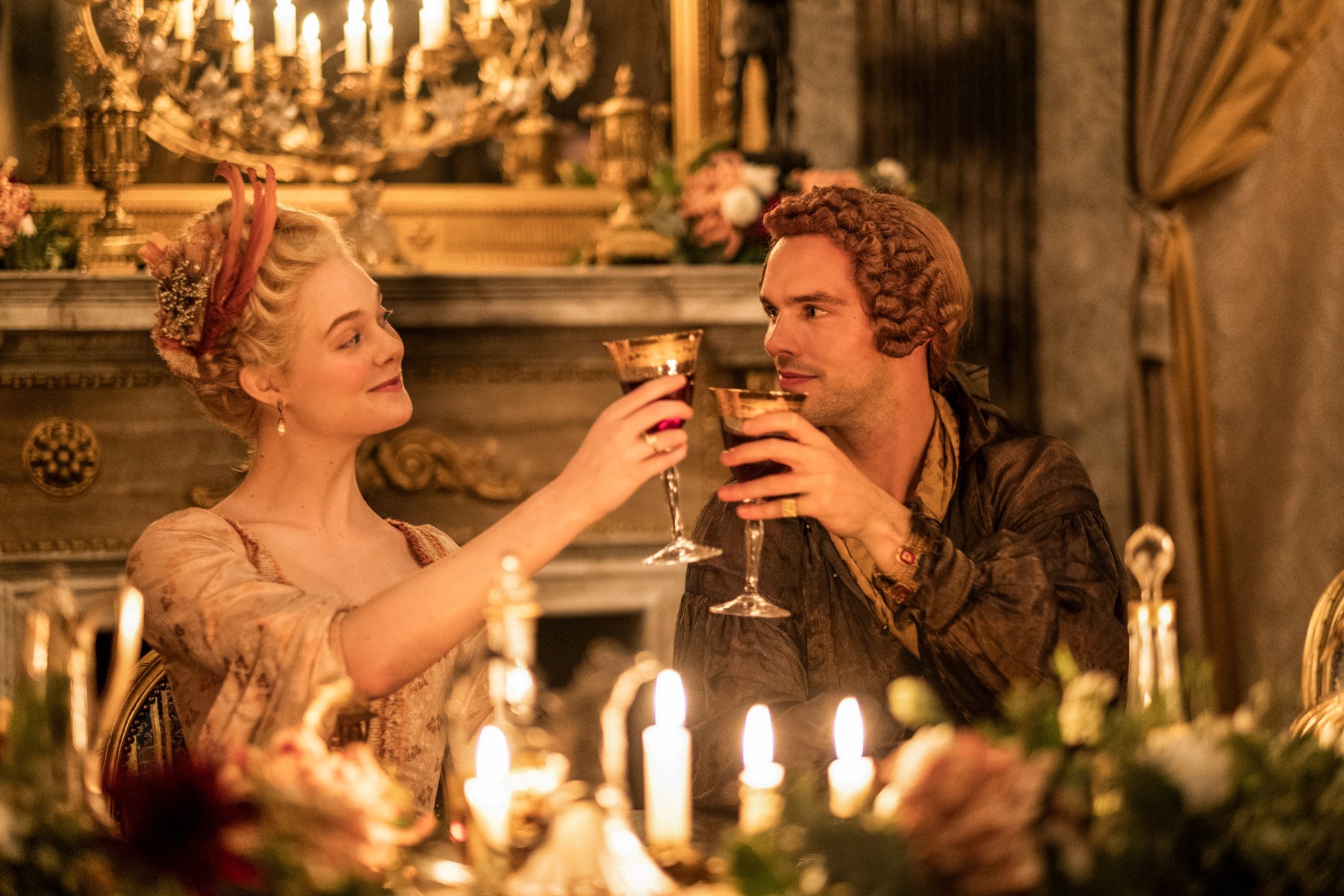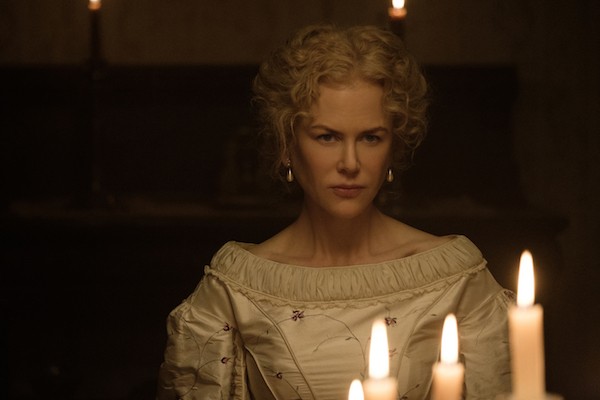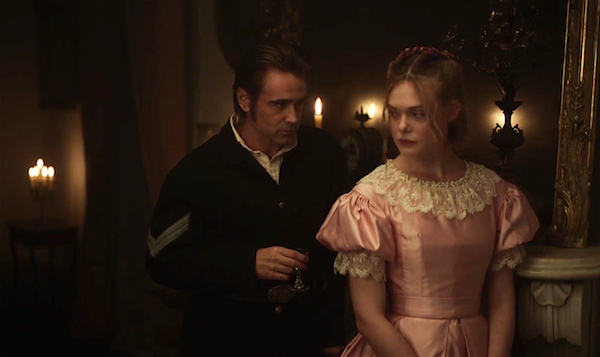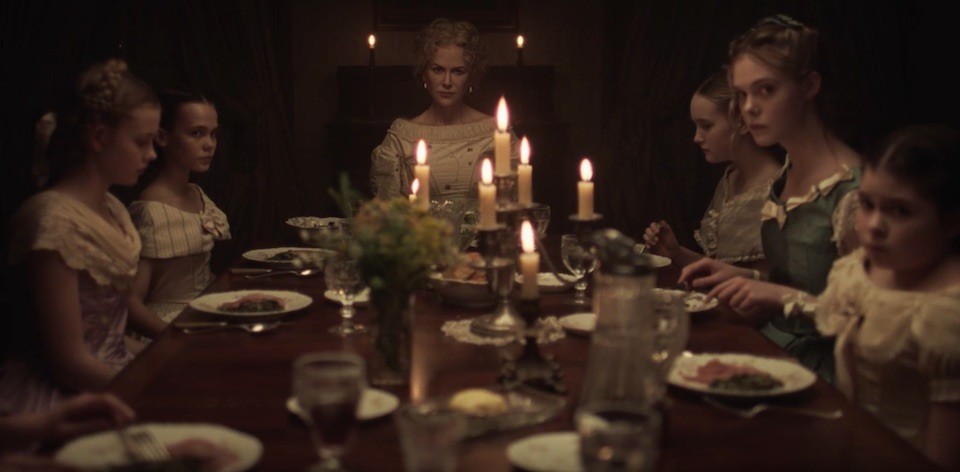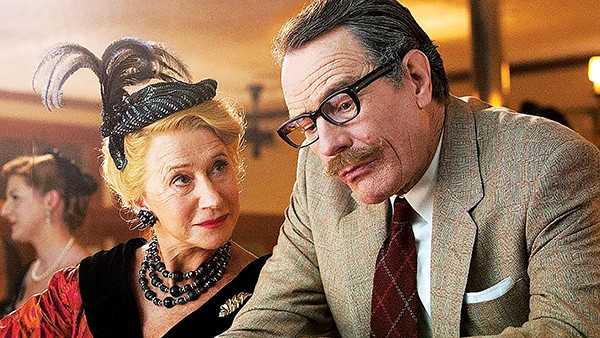There’s one detail that everyone who was at the 1965 Newport Festival seems to agree on: Bob Dylan wore a polka dot shirt.
Dylan’s three-song set at the annual music festival was one of those moments where an artist challenged their audience so intensely that it broke brains. In 1913, the Paris premiere of Igor Stravinsky’s The Rite of Spring caused a literal riot in the theater. Fifty years later, when Dylan takes the stage in the sleepy Rhode Island town armed with a Stratocaster and backed by Chicago electric blues disciple Mike Bloomfield, the audience which had made him a star shouts “Judas!” in this film. It is a moment that has become fraught with meaning. Depending on which side of the Great Folk Divide you fall on, it was either a rejection of the folk movement’s New Deal ideology or a declaration of artistic independence from hidebound tradition.
The Newport set is the climax of Elijah Wald’s book Dylan Goes Electric, which James Mangold has adapted into A Complete Unknown. Timothée Chalamet is the latest in a surprisingly long list of actors who have played Bob Dylan onscreen — including Bob Dylan himself.
If you want a film that uses Dylanesque artistry to explore the mythic aspects of Bob Dylan, it’s Todd Haynes’ I’m Not There. This is a music biopic by James Mangold. His Walk The Line, which was filmed in Memphis, set the standard for the genre. It was skewered so effectively by Walk Hard: The Dewy Cox Story that many people have become allergic to the basic beats that appear in every musician’s story.
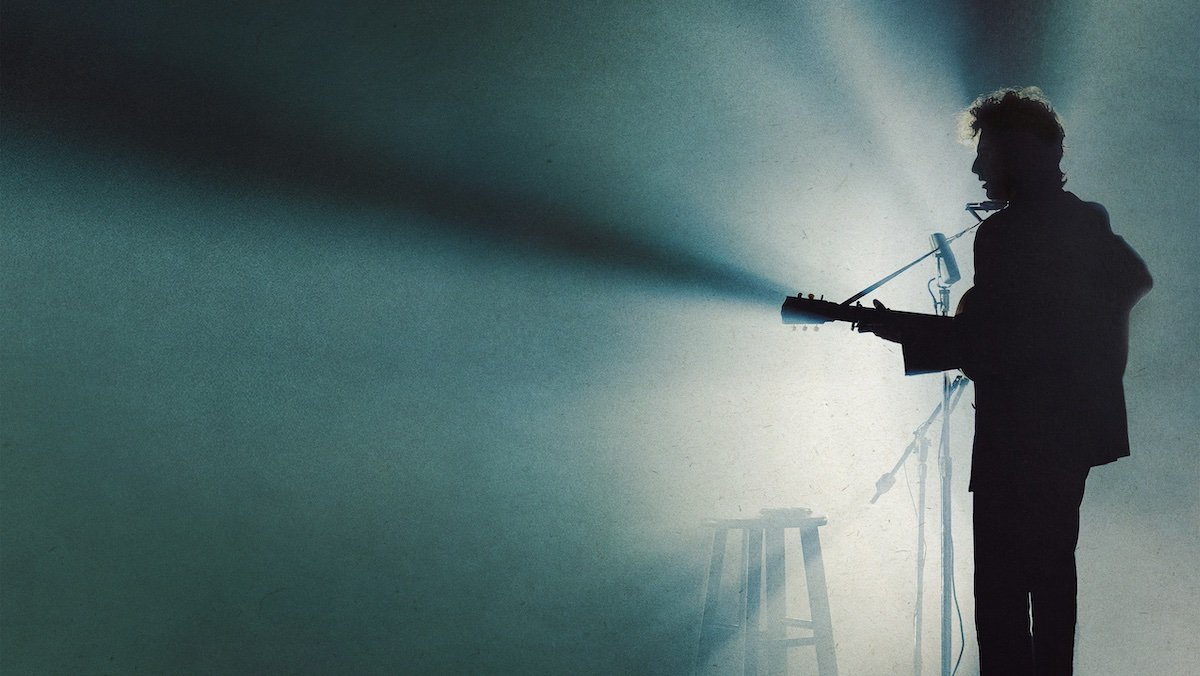
Mangold and his star overcome self-parody by sheer force of execution. His actors sing all of the songs live on set, a Herculean task that is a bit easier for Chalamet, who must growl like Dylan, than it is for his co-star Monica Barbaro, who must sing like Joan Baez. The contrasting grit and glamor of the folk movement’s two greatest stars is what made their pairing palatable, and gave it a hint of danger. Baez recognizes Dylan’s talent as soon as she hears him sing in a cramped Greenwich Village basement. But she’s one of the few people who doesn’t immediately worship him, which makes her irresistible to him. The self-possessed Baez never gives an inch; when he betrays her onstage in front of a crowd of restless proto-hippies, she calmly sings on without him.
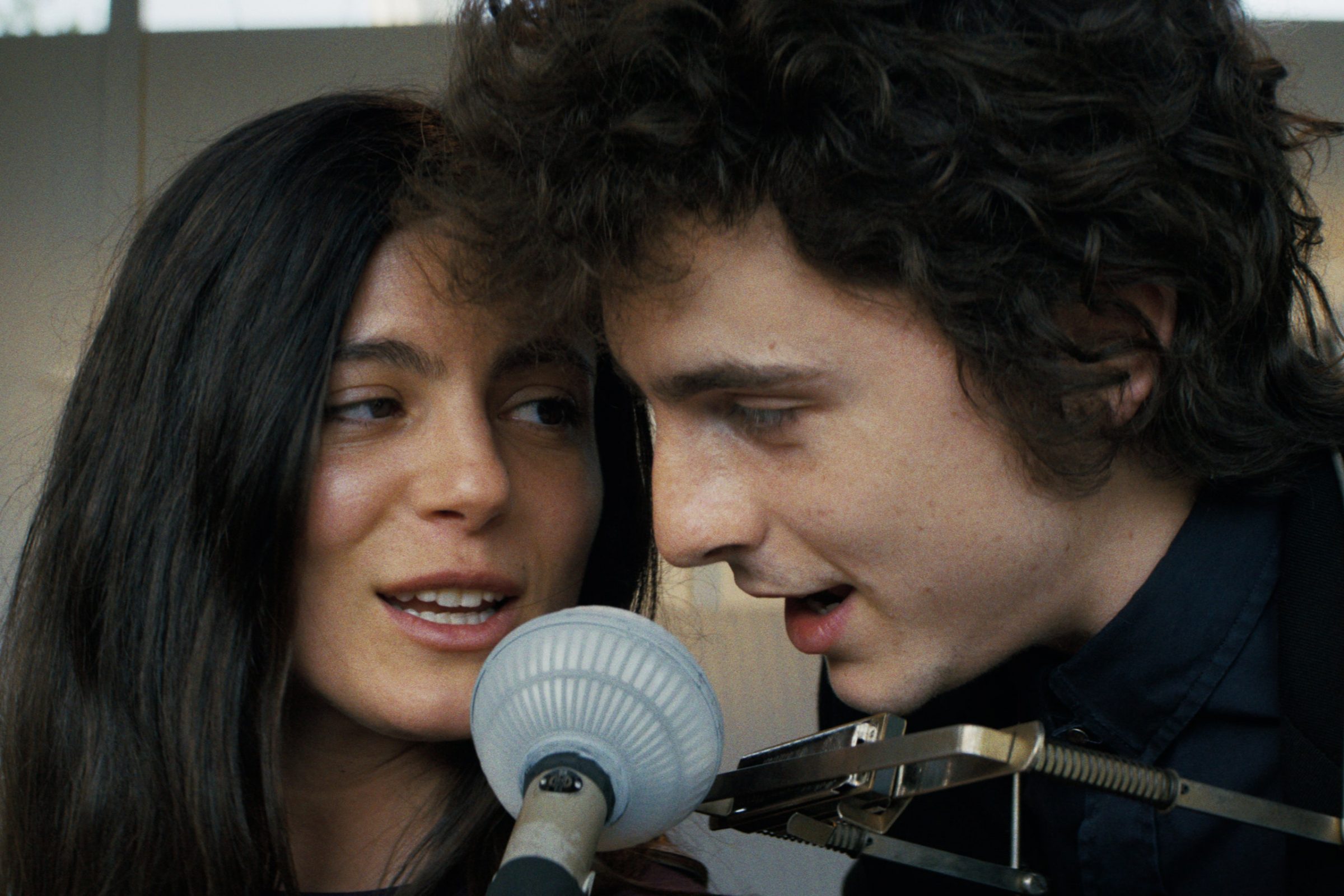
Joan didn’t need Bob, but Sylvie Russo (Elle Fanning) does. Based on the real Suze Rotolo, who appears with her then-boyfriend on the cover of The Freewheeling Bob Dylan, Sylvie is the New York sophisticate who introduces the weird boy from Minnesota to the big city. Dylan takes first the bohemian folk scene, then the cocktail party circuit by storm.
And that’s where his polka dot shirt comes in. Dylan’s appearances at the 1963 and 1964 Newport Folk Festival brought him to national attention, and his album sales took off like none of the other folkies who he emulated and idolized ever did. By 1965, he had turned the Beatles on to marijuana and was dressing like a Soho hipster instead of wearing the populist work shirt uniform favored by his mentor, Pete Seeger (Ed Norton). For the folkies, it was the first sign that their standard bearer was going to betray them.
I keep using the word “betray” in this review. Mangold and Gangs of New York writer Jay Cocks’ screenplay may not please Dylan pedants. Great as he is, Bobbie didn’t write “Masters of War” in response to the Cuban Missile Crisis, debut it in a Greenwich Village coffee shop, and bed Joan Baez all in one night. But Chalamet’s dead-on Dylan impression papers over the holes, and the film captures the essence of the time. A Complete Unknown is not a hagiography. Dylan might be a musical genius, but he’s a toxic boyfriend, and by the end of the film, both of his prime paramours know it. He is beloved by millions, but he is alone. As he rides off on the motorcycle that will almost kill him a few weeks later, he does not yet know the price he had paid for his freedom.
